- Home
- Tony Parsons
The Family Way Page 2
The Family Way Read online
Page 2
‘See you soon, Jess,’ Paulo said, not quite catching her eye.
She used to drive him crazy. Now he acted as though sex was an exam he hadn’t prepared for.
‘Oh, my word,’ said the TV commentator. ‘He’s never going to get it in from there.’
A cone of golden light fell on Megan at her crowded desk.
She looked up from her computer screen at the skylight in the ceiling of the tiny room. To Megan it looked like a window in the kind of prison where they locked you up and threw away the key. The light and noise that filtered down indicated another world out there but it felt a very long way away. Yet she loved this room – her very first office in her first real job. Every morning she felt a shiver of pleasure when she walked into the little room. Smiling to herself, Megan got up from her desk and climbed on her chair. She was getting good at it now.
Three times a day she stood precariously on her swivel chair, its cushion worn threadbare by the buttocks of all those who had sat there before her, and she clung to the frame of the skylight, craning her neck. If she stood on tiptoe, she could see most of the school playground that backed onto the rear of the building. Megan loved to listen to the sound the children made at playtime. They were little ones, as noisy and smooth-skinned as babies. They sounded like a flock of ecstatic birds. She realised she had never had much experience of small children. She was so used to being the youngest.
‘Doctor?’
Megan spun round, almost toppling off her chair.
A crumpled-looking woman was standing in the doorway, nervously fingering a piece of wet kitchen towel. A child in some kind of miniature football shirt was shrieking at her feet. The woman watched red-eyed as Megan descended to her desk.
‘They told me to go in, doctor. The lady on the desk.’ The woman looked shyly at the ground. ‘Nice to see you again.’
Megan’s mind was blank. She had seen so many faces recently, and so many bodies. She got a name, a date of birth and took a quick look at her notes. Then it all started to come back.
The woman had been here a few weeks ago with this same small child, who was then in his other outfit of a grubby grey vest, and chomping on a jam sandwich.
The brat had run his sticky paws through Megan’s paperwork while she examined his mother, confirming her pregnancy. The woman – Mrs Summer, although as far as Megan could tell, she wasn’t married, and she didn’t have a partner called Summer – had received the news like it was a final demand from the taxman. Not much older than Megan, who was twenty-eight, Mrs Summer was already beaten down by motherhood. The apprentice hooligan with the jam sandwich was her fourth from a rich variety of men.
‘How can I help you?’ Megan asked now, relieved that the brat seemed more subdued today.
‘There’s been some bleeding, Dr Jewell.’
‘Let’s take a look at you.’
It was an early miscarriage. The woman had been depressed by the news of the pregnancy, but this was infinitely worse. Suddenly, catching Megan off-guard, Mrs Summer seemed to be choking.
‘What did I do wrong? Why did it happen?’
‘It’s not you,’ Megan said. ‘A quarter of all pregnancies end in – Here. Please.’
Megan pushed her box of Kleenex across the desk. Mrs Summer’s scrap of kitchen towel was coming apart, and so was she. Megan came out from behind her desk and put her arms around the woman.
‘Truly, it’s not you,’ Megan said again, more gently this time. ‘The body runs its series of tests. It finds some abnormality in the embryo. Why does it happen? The honest answer is – we don’t know. A miscarriage comes out of the blue. It’s horrible, I know. The thought of what might have been.’ The two women stared at each other. ‘I’m sorry for your loss,’ Megan said. ‘I really am.’
And Megan was sorry. She even sort of understood how Mrs Summer could be terrified at the prospect of another baby, and yet devastated when the baby was abruptly taken away from her. A fifth child would have been a disaster. But losing it was a tragedy, a death in the family that she wasn’t even really allowed to mourn properly, except for these shameful tears in a doctor’s surgery the size of a broom cupboard.
Megan talked quietly to Mrs Summer about chromosomal and genetic abnormalities, and how, hard as it was for us to accept, they were simply incompatible with life.
‘You and your partner have to decide if you want any more children or not,’ Megan told her. ‘And if you don’t, then you need to start practising safe sex.’
‘I do, doctor. But it’s him. It’s me…partner. He doesn’t believe in safe sex. He says it’s like taking a shower in a raincoat.’
‘Well, you’ll just have to discuss it with him. And condoms are far from the only possibility, if that’s what he’s referring to.’
Megan knew perfectly well that condoms were what he was referring to. But now and again she felt the need to adopt a magisterial tone, to reassert her authority, to keep her head above the sorry human mess that pressed its way into her surgery.
‘What about the pill?’
‘I blew up. Fat as a fat thing. Got thrombosis. Blood clots. Had to come off it.’
‘Coitus interruptus?’
‘Whipping it out?’
‘Precisely.’
‘Oh, I don’t think so. You haven’t met him. I’ve tried, doctor. Tried all the safe sex. What do you call it? The rhythm section.’
‘Rhythm method, yes.’
‘Tried that one when the doctor said it was the pill that was blowing me up. But it’s when I’m asleep. He just helps himself.’
‘Helps himself?’
‘Jumps on top of me and he’s away. Then snoring his head off the moment it’s over. You would never get a condom on him, doctor. I wouldn’t like to try. Honest I wouldn’t.’
It was another world out there. The sprawling estates that surrounded the surgery. Where a baby was still a bun in the oven and the men still helped themselves when some poor cow collapsed at the end of another busy day.
‘Well, you tell him he can’t help himself. It’s outrageous behaviour. I’ll talk to him if you want me to.’
‘You’re nice, you are,’ the woman told Megan, and grasped her in a soggy bear hug. Megan gently prised her away, and talked about the glories of an intrauterine device.
Women liked her. She was by far the youngest doctor at the surgery, a GP registrar only a month into her final year of vocational training, yet easily the most popular.
She had spent the last seven years preparing for this job – six of them at medical school, and the last year as a house officer in two London hospitals. Now, in a surgery where the other three doctors were all men, she was finally in a position where she could make a difference.
When women came in complaining of period pains that made them feel like throwing themselves under a train, Megan didn’t just tell them to take a painkiller and get a grip. When young mothers came in saying that they felt so depressed they cried themselves to sleep every night, she didn’t simply tell them that the baby blues were perfectly natural. When a nuchal scan said that the possibility of Down’s syndrome was high, Megan discussed all the options, aware that this was one of the hardest decisions that any woman would ever have to make.
When Mrs Summer was gone, Dr Lawford stuck his head around her door. In the confines of the tiny room, Megan could smell him – cigarettes and a cheese and pickle bap. He bared his teeth in what he imagined to be a winning smile.
‘Alone at last,’ he said.
Lawford was Megan’s GP trainer – the senior doctor meant to act as her guide, teacher and mentor during the year before she became fully registered. Some junior doctors worshipped their GP trainers, but after a month under his tutelage, Megan had concluded that Dr Lawford was a cynical, bullying bastard who hated everything about her.
‘Chop chop, Dr Jewell. Your last patient was here for a good thirty minutes.’
‘Surely not?’
‘Thirty minutes, Dr Jewell.’ Tap
ping his watch. ‘Do try to move them in and out in seven, there’s a good chap.’
She stared at him sullenly. Growing up with two older sisters had made Megan militant about standing up for herself.
‘That patient has just had a miscarriage. And we’re not working in McDonald’s.’
‘Indeed,’ laughed Dr Lawford. ‘Dear old Ronald McDonald can lavish a lot more time on his customers than we can. Here, let me show you something.’
Megan followed Lawford out into the cramped waiting room.
Patients sat around in various degrees of distress and decay. A large woman with a number of tattoos on her bare white arms was screaming at the receptionist. There were hacking coughs, children crying, furious sighs of exasperation. Megan recognised some of the faces, found that she could even put an ailment to them. She’s cystitis, she thought. He’s hypertension. The little girl is asthma – like so many of the children breathing the air of this city. My God, she thought, how many of these people are waiting to see me?
‘You’re going to have a busy morning, aren’t you?’ Dr Lawford said, answering her question. ‘A good half of these patients are waiting for you.’ Chastened, Megan followed Lawford back to her office.
‘It’s Hackney, not Harley Street,’ he said. ‘Seven minutes per patient, okay? And it doesn’t matter if they have got the black plague or a boil on the bum. Seven minutes, in and out. Until God gives us forty-eight hours a day, or we get jobs in the private sector, it’s the only way we can do it.’
‘Of course.’
Lawford gave her an exasperated look and left her alone.
To get to this little room, Megan had worked so hard, but she wondered if she could make it through this final year with Lawford watching her every move. She had heard the only reason that surgeries welcomed a junior registrar was because it meant they were getting a doctor for nothing. But none of the old quacks, no matter how penny-pinching or cynical, wanted a bolshy GP registrar who was going to make their lives even harder. They would be better off without her. Megan felt that Lawford was waiting for her to do something stupid, so he could cut his losses and get shot of her.
And that was ironic because Megan suspected that she already had done something stupid. Something so stupid that she could hardly believe it.
In the morning, during one of her regular breakfast meetings with Lawford – Megan was obliged to meet him twice a week so that they could discuss her progress, or lack of it – she had quickly excused herself and run off to throw up her almond croissant and cappuccino in a café lavatory smelling of lemon-scented Jif.
But it was on her way home to her tiny flat, her feet and back aching, that Megan really believed that she had done something stupid.
She knew it was impossible, she knew that it was far too soon. But it felt so real.
The kick inside.
Two
‘Oh, you’re far too young to be having a baby, dear,’ Megan’s mother told her. ‘And I’m certainly too young to be a grandmother.’
Megan estimated that her mother must be sixty-two by now, although officially she had only been in her fifties for the last six years or so.
In Megan’s surgery she often saw grandmothers from the Sunny View Estate who were the same age as Cat and even Jessica – all those ‘nans’ in their middle and early thirties, who started child-bearing in what Mother Nature, if not the metropolitan middle class, would have considered their child-bearing years. But it was true – Olivia Jewell didn’t look like anyone’s idea of a grandmother. And Megan thought, why should she? She had never really got the hang of being a mother.
Olivia Jewell still turned heads. Not because of the modest fame that she had once enjoyed – that had evaporated more than twenty years ago – but because of the way she looked. The massed black curls, the Snow White pallor, those huge blue eyes. Like Elizabeth Taylor if she had won her fight against the fat, or Joan Collins if she had never made it to Hollywood. An elderly English rose, wilting now, it was true, but still with a certain lustre.
‘They take over your life,’ Olivia said, although her voice softened as she contemplated her youngest daughter. ‘Darling. You don’t want anyone taking over your life, do you?’
When their parents had met at RADA, it was Olivia who was the catch. Jack was a tall, serviceably handsome young actor, ramrod straight after two years’ National Service in the RAF and moonlighting as a male model (cigarettes, mostly – the young Jack looked good smirking in a blazer with a snout on the go).
But Olivia was a delicate porcelain beauty, like that other Olivia, Miss de Havilland, already a bit of a throwback in those years of post-war austerity, when large-breasted blondes were suddenly all the rage.
Olivia was swooned over by her teachers, her classmates and, later, the critics, who loved her as a petulant, foot-stamping Cordelia in Stratford. It was widely predicted that Jack would always work, but that Olivia was destined for true stardom. In the mocking passage of time, it had worked out very differently.
After a few years where he scuffled around in the background of British films nostalgic for World War Two – playing the pipe-smoking captain in a chunky sweater who goes down with his shipmates, or the knobbly-kneed POW who gets shot in the back by the Hun while attempting to escape, or the RAF squadron leader with the gammy leg anxiously scanning the blue skies of Kent – Jack Jewell stumbled on the role of a lifetime.
For almost twenty years he played a widowed father in the long-running BBC fishing drama, All the Fish in the Sea – played it for so long that Megan, his youngest child, had little memory of her father being around when she was growing up, he was so busy playing a doting father to his screen children. By the time they reached their teenage years, Jack Jewell’s kindly, knowing face had become one of the cherished icons of the nation, while Olivia’s big starring roles had never materialised.
‘Dad would be pleased,’ Megan said, deliberately provoking her. ‘Dad would be happy to be a grandfather.’
Olivia shot her daughter a look. ‘You didn’t tell him, did you?’
‘Of course not. But he would be happy, I bet.’
Olivia Jewell laughed. ‘That’s because he’s a big soft bastard. And because he doesn’t care what it would do to your life. Not to mention your lovely young body, dear.’
Megan and her mother were in the café in Regent’s Park, ringed by all the white Nash houses, the most beautiful buildings in London, Megan thought, like architecture made out of ice cream. They were on one of their dates – drinking tea and watching the black swans glide across the lake, smelling freshly cut grass and the animal mustiness of the nearby London Zoo.
Megan was the only one of her daughters that Olivia saw on a regular basis. Contact with Jessica was sporadic – Jessie was too easily hurt for a sustained relationship with someone as selfish as Olivia – and Cat hadn’t spoken to their mother in years.
You had to make an effort with her, Megan always thought. That’s what her sisters didn’t get. Their mother was all right if you made the effort.
‘In the early sixties there was a darling little Maltese man off Brewer Street who used to take care of girls who got into trouble.’ It still mildly surprised Megan every time she heard her mother’s voice. She had a self-consciously cut-glass accent, the kind of accent that made Megan think of men in Broadcasting House reading the news in their tuxedos. ‘God – what was his bloody name?’
‘It doesn’t matter, I’ll be all right,’ Megan said, pushing a napkin halfway across the table. Olivia covered her daughter’s hands with her own, and gently rubbed them, as if to make them warm.
‘Well – anything I can do, dear.’
Megan nodded. ‘Thank you.’
‘A woman’s body is never the same after giving birth. I had a body like you when I was young. Not petite like Jessica. Or skinny like Cat. More like you. All curves.’ Olivia squinted at her daughter. ‘Perhaps not quite so plump.’
‘Thanks a million.’
‘Did you know that Brando once made a pass at me?’
‘I think you mentioned it. About ten thousand times.’
‘Dear Larry Olivier admired my Cordelia. The dress I wore to the premiere of Carry On, Ginger caused a sensation. I was the Liz Hurley of my day.’
‘Then that makes Dad Hugh Grant.’
‘Hughie Green more like. That man. I dreamed of Beverly Hills. He gave me Muswell Hill.’
It was strange, Megan thought. Their mother was the one who walked out. Their mother was the one who shacked up with a second-rate ham in a rented flat. Their mother was the one who left the raising of her children to their father, and whoever he could hire, and to Cat. And yet their mother was the one who acted bitter. Perhaps she could never forgive their father for becoming a bigger name than she would ever be.
Her career had been a peculiarly English affair. If Olivia Jewell had ever needed a job description, then plummy crumpet would have just about nailed it down. In the fifties she had screamed her way through half a dozen Hammer Horror movies – strung up in her nightdress in a Transylvanian dungeon, the mad doctor lurching towards her, wicked experiments on his mind – and then moved into whatever ramshackle provincial theatre would have her when the times and the accents changed, and the public wanted actresses to be more working class and northern (the kitchen sink dramas), or exotic and foreign (James Bond and his bikini-clad harem).
Although only twenty-two when the sixties began, Olivia Jewell seemed to belong to another era. But she would never admit to the long years of rep and resting. In her conversation, and perhaps even in her feverish head, she was all that her teachers at RADA and Kenneth Tynan had predicted she would ever be.
Olivia’s star burned brightest the year after she left home for ever. Fleeting fame, when it came for their mother, arrived late. She was pushing forty – and admitting to thirty-two – when she landed the part of the posh, nosy neighbour in the mid-seventies ITV sitcom, More Tea, Vicar? The man in the back of the cab was the male lead, playing a diffident young priest who had an electrifying effect on his female parishioners, and in the sweltering summer of 1976, while London seemed to melt in the heat and Cat cooked for her sisters and tried in vain to find this new group the Sex Pistols on the radio, Olivia and her dirty vicar appeared together on the cover of the TV Times.

 Long Gone the Corroboree
Long Gone the Corroboree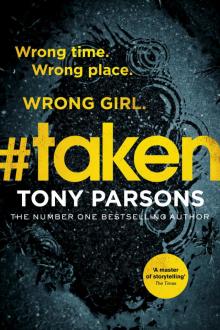 #taken
#taken The Family Way
The Family Way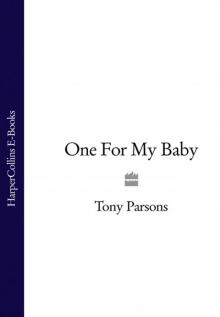 One For My Baby
One For My Baby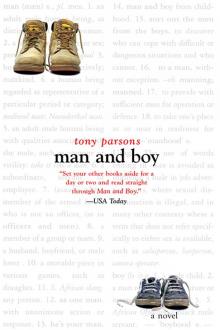 Man and Boy
Man and Boy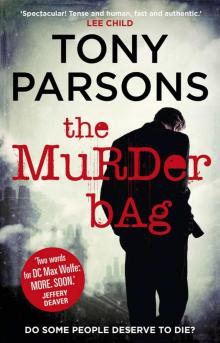 The Murder Bag
The Murder Bag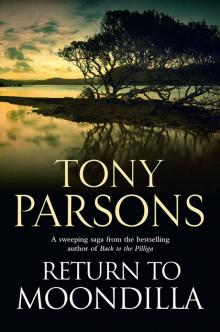 Return to Moondilla
Return to Moondilla Beyond the Bounty
Beyond the Bounty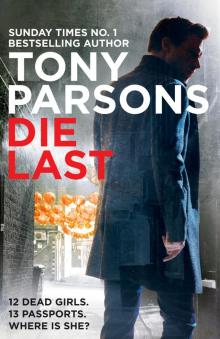 Die Last
Die Last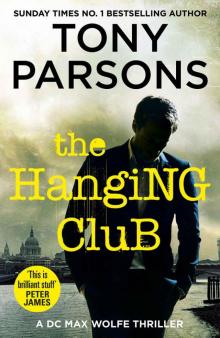 The Hanging Club (DC Max Wolfe)
The Hanging Club (DC Max Wolfe) Stories We Could Tell
Stories We Could Tell Return to the High Country
Return to the High Country Silver in the Sun
Silver in the Sun My Favourite Wife
My Favourite Wife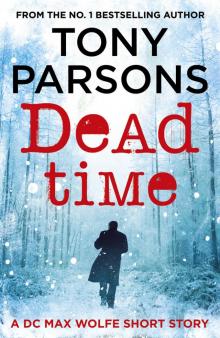 Dead Time
Dead Time Girl On Fire
Girl On Fire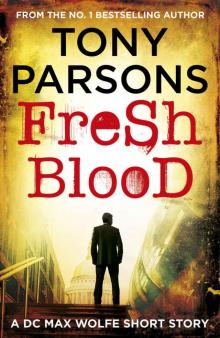 Max Wolfe 02.5 - Fresh Blood
Max Wolfe 02.5 - Fresh Blood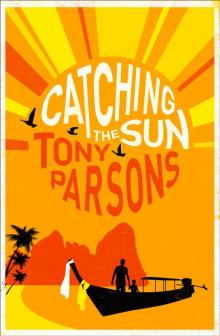 Catching the Sun
Catching the Sun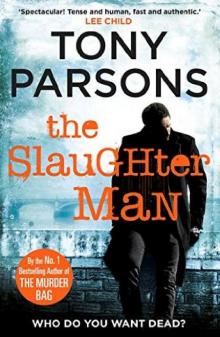 The Slaughter Man
The Slaughter Man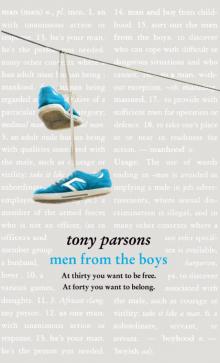 Men from the Boys
Men from the Boys Man and Wife
Man and Wife Valley of the White Gold
Valley of the White Gold Back to the Pilliga
Back to the Pilliga The Call of the High Country
The Call of the High Country Girl On Fire_DC Max Wolfe
Girl On Fire_DC Max Wolfe